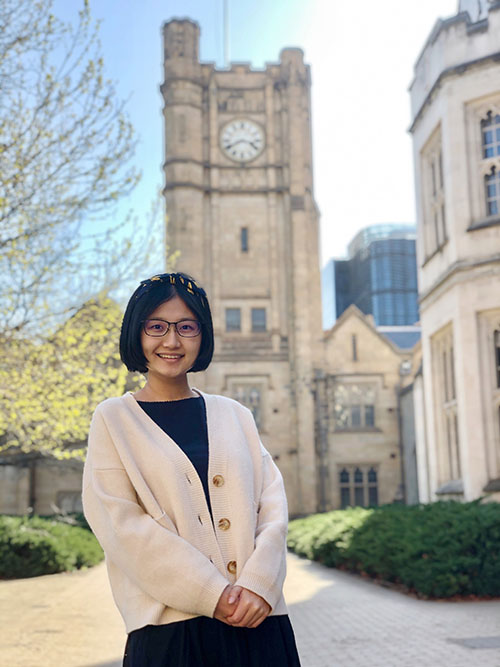Two words of advice: get involved
Pamela Gao was settling into a career in data analytics when the chance to work with her company’s IT team provided the inspiration for a return to study.
Three years after completing her commerce degree, she started a Master of Information Technology at Melbourne School of Engineering (MSE).
 “In my job as a data analyst I was repeating the same tasks every day, but luckily the company was implementing a systems upgrade. I got to work with the IT team and a senior software developer. Through them I began to see a whole new opportunity in technology,” said Pamela.
“In my job as a data analyst I was repeating the same tasks every day, but luckily the company was implementing a systems upgrade. I got to work with the IT team and a senior software developer. Through them I began to see a whole new opportunity in technology,” said Pamela.
Encouraged by the IT team, she used online tutorials to teach herself a programming language, SQL. Within a month she was able to write a script to automate her repetitive processing tasks.
“It was amazing. I was able to do in five minutes what previously took hours. I discovered two things: the power of technology and that it wasn’t that hard to pick up.”
Pamela had always been interested in technology but wasn’t sure there were opportunities in the field for women. “Everyone I knew in technology or engineering was male, so I assumed it must be easier for them. I discovered this perception was completely wrong.”
Inspired, and encouraged by her IT colleagues, Pamela decided to return to university and shift her career from commerce to technology. She has a long-term plan to meld the two. “I can definitely see opportunities there,” she said.
Pamela is in her final year of her Masters, majoring in computing.
The flexibility and diversity of the subjects available has enabled her to explore different areas of IT such as software project management, machine learning, data warehousing, human–computer interaction, spatial systems and network security.
“I had the opportunity to design software programs, write academic journals, work in a project management team, and make presentations. These experiences helped me to develop technical skills such as different programming languages, software design and data analytics.
“More importantly, they also helped to develop soft skills including teamwork, leadership and effective communication. Technical skills and soft skills are viewed as equally important by employers in the IT industry.
“My professors have world-class research, work, and teaching experience. They are open-minded and embrace innovation. Also, they are very approachable.”
In addition to her own studies, Pamela has become an active campaigner encouraging young women to consider the variety, challenges and rewards of technology careers.
Through the Ask Alumni and In2Science programs, she regularly talks with undergraduate and secondary school students, sharing her experience and enthusiasm for science and technology.
“Even if they don’t want to do a technology degree, I encourage students to look at online courses, many of which are free, just to get some exposure to the field and its tools. You’ll be amazed by how much you can pick up and put to use.”
Pamela sees her change of direction as a good example of a path that may lie ahead for many graduates today.
“When I was a young girl my parents would talk about what career I might have. But that way of thinking has changed. Most of my generation are probably going to have many careers. That is exciting because you can learn new skills quite quickly. That gives us the capability to adapt rapidly to new environments, new jobs, new career paths.”
She attributes her outlook to being an international student forced to think laterally in a new country.
While studying her commerce degree, she worked at a fast food restaurant.
“Without realising it, I was picking up new skills … improving my English, people and communication skills, conflict handling … a whole range of the so-called ‘soft’ skills that are relevant to any future career,” she said.
“That’s why I encourage all students, especially international students, to get involved with campus activities. You are learning extra skills, making connections, and it makes you part of the University of Melbourne and its reputation. Employers are looking to the University for people and are providing information about who and what they are looking for. You need to be connected to that.”
Pamela says that during her second degree she has followed her own advice. “From the moment I started my Masters, my life has been events, study, events, study.”
As a result, she has already secured a post-graduation position as a software developer for a major Australian online company.